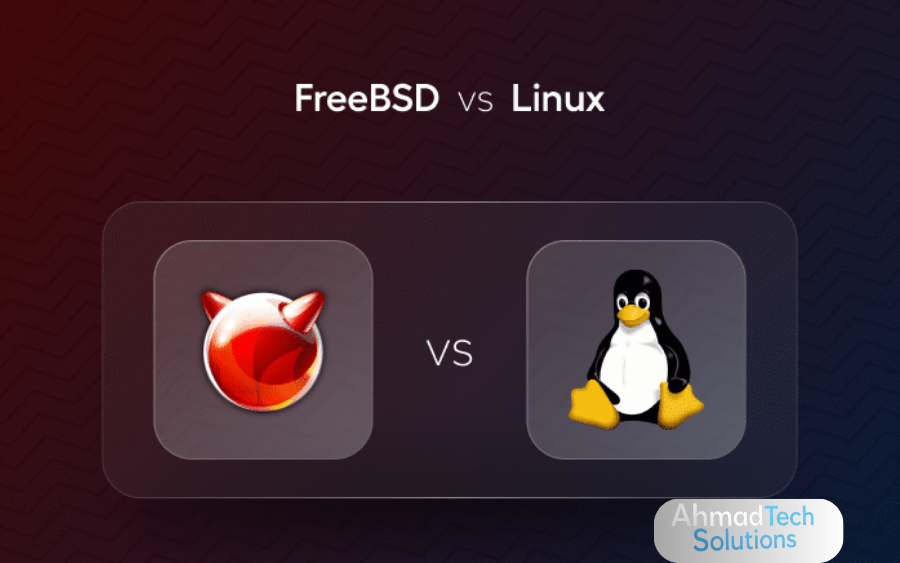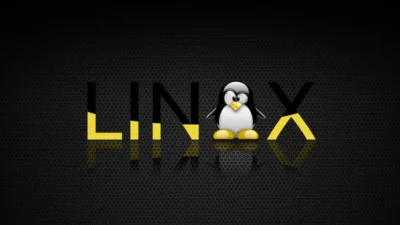Introduction
FreeBSD is widely recognized as one of the most well-engineered and robust operating systems. However, despite its technical advantages, it has not gained the same level of popularity as Linux. This raises an important question: Why is it not as popular as Linux, even though it is often considered more stable, secure, and well-architected?
In this article, we will explore the factors that contribute to Linux’s dominance over FreeBSD, analyzing their differences, market adoption, and real-world applications.
Understanding FreeBSD and Linux
What is FreeBSD?
It is an open-source Unix-like operating system derived from the Berkeley Software Distribution (BSD). It is known for its reliability, advanced networking capabilities, and security features. it is often used in servers, embedded systems, and specialized environments where stability and performance are critical.
What is Linux?
Linux, on the other hand, is an open-source operating system built around the Linux kernel. It powers everything from personal computers and mobile devices to large-scale enterprise servers and cloud environments. The success of Linux is driven by strong community support, extensive hardware compatibility, and widespread enterprise adoption.
Key Reasons Why FreeBSD is Not as Popular as Linux
1. Licensing Differences
One of the fundamental reasons why Linux has surpassed it in popularity is the difference in licensing:
- FreeBSD uses the BSD license, which allows anyone to use, modify, and redistribute the code without requiring them to release modifications back to the community.
- Linux uses the GPL (GNU General Public License), which requires that modifications and derivatives be made publicly available.
The GPL licensing model encouraged massive collaboration, leading to a strong and thriving ecosystem of developers, businesses, and organizations supporting Linux.
2. Corporate Adoption and Sponsorship
Linux has received immense support from major corporations, including IBM, Red Hat, Google, Microsoft, and Amazon. These companies have heavily invested in Linux, making it a standard operating system for cloud computing, enterprise servers, and consumer devices.
In contrast, it has fewer corporate backers, with some notable exceptions like Netflix and Juniper Networks. The lack of widespread corporate support has limited FreeBSD’s visibility and growth in mainstream computing.
3. Hardware and Software Compatibility
Linux supports a vast array of hardware devices, thanks to its extensive driver support and widespread adoption by hardware manufacturers. This makes Linux a preferred choice for desktops, servers, and embedded systems.
On the other hand, FreeBSD often lags behind Linux in terms of hardware support, particularly for consumer-grade hardware such as graphics cards and Wi-Fi adapters. This has made Linux a more practical choice for general users and enterprises.
4. Package Management and Software Availability
Linux distributions come with powerful package managers like APT (Debian-based), YUM/DNF (Red Hat-based), and Pacman (Arch Linux), making software installation and updates easy.
FreeBSD, while having the Ports Collection for software management, has a smaller repository compared to Linux. Many commercial applications and enterprise software are primarily developed for Linux, leaving FreeBSD users with fewer choices.
5. Community Size and Support
The Linux community is significantly larger than FreeBSD’s, leading to:
- More active development
- Faster bug fixes
- Stronger online support forums
- Extensive documentation and tutorials
While FreeBSD has a dedicated and skilled community, its smaller size has limited its mainstream growth.
6. Marketing and Awareness
Linux has benefited from aggressive marketing by companies like Red Hat, Ubuntu (Canonical), and SUSE, which have made Linux accessible to enterprises, developers, and even casual users.
FreeBSD, on the other hand, has had minimal marketing efforts, leading to lower awareness among general users and businesses.
7. Performance and Use Cases
Despite its lower popularity, FreeBSD excels in several areas, including:
- Networking and Security: Many firewalls and routers, such as pfSense, run on it.
- Streaming Services: Netflix uses for its content delivery network (CDN) due to its efficiency.
- Stability and Uptime: Known for rock-solid stability, making it ideal for mission-critical servers.
However, Linux is far more adaptable to different environments, from desktops and mobile devices to enterprise cloud computing and supercomputers.
Which One Should You Choose?
Choosing between FreeBSD and Linux depends on your specific needs:
- For enterprise use: Linux is the better option due to strong corporate support and software compatibility.
- For networking and security: FreeBSD is an excellent choice for firewalls, routers, and security appliances.
- For general users: Linux is more user-friendly, has better driver support, and offers more software options.
- For developers: Linux provides a broader ecosystem with better tooling and community support.
Conclusion: Is FreeBSD Better Than Linux?
While FreeBSD is a well-engineered, stable, and secure operating system, it has not gained the same widespread adoption as Linux due to licensing differences, corporate sponsorship, software support, and community size. Linux’s strong community, corporate backing, and adaptability have made it the dominant open-source operating system today.
That being said, FreeBSD remains a powerful choice for specific use cases, particularly in networking, security, and embedded systems.
If you are looking for an operating system that is highly customizable, secure, and well-structured, FreeBSD is an excellent option. However, for general users, developers, and enterprises looking for the best support, software availability, and adaptability, Linux remains the top choice.
Did you enjoy this post? Let us know your thoughts in the comments below! If you’re looking for professional IT solutions, server management, or custom software development, reach out to Ahmad Tech Solutions.



